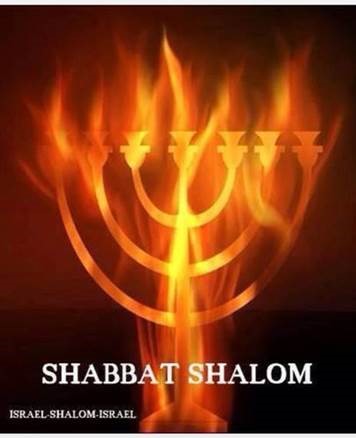Shabbat Shemini Shalom
Mar 25, 2022

Poor Nadav and Avihu, who brought an “aish zara,” a strange fire (10.1), for which, in turn, they were both consumed in God’s holy fire (10.2). Why? Do they exist to forever teach us to proceed humbly, cautiously, when approaching the Divine? To never do anything that we are not explicitly commanded to do? Were Nadav and Avihu too enthusiastic, unforgivably original, individualistic, innovative? Or, was their perhaps drunken excitement too similar to pagan worship? And was their choice of incense the final, tempting straw? If Nadav and Avihu sinned for any of these reasons—was Moshe only trying to comfort their father, Aharon, when he said “b’krovai ehkadesh” (10.3), those close to me will sanctify Me and as such, God took them with fire? Why would our God want a human sacrifice?
Why does God manifest God’s Self in fire? In Bereshit, Eden is barred to us by “V’aish lahat ha’herev ha-methapeket,” by a fiery rotating sword (3:23). In Bereshit (15:17), God places Avraham in a “tardemah,” after which a smoking oven appears “v’lapid aish,” and a fiery flaming torch passes between the covenant of “pieces.” In Shmot, God’s angel appears to Moshe in a burning bush, one that is not consumed “v’eynanu oochal” (3:2); also, God leads us through the desert at night, “b’amud aish,” in a pillar of fire, (13:21); and at Sinai, God descends in fire—“yarod alav b’aish.”
Fire is searingly hot and very frightening. I’ve survived two major fires and it is not something I wish to repeat. And yet, Eliyahu Ha Navi ascends to Heaven in a chariot of fire and it is said that the Torah itself is written with black fire on white fire and that it constitutes a “din aish,” a fiery law.
The Sages tell us that God created Heaven by harmonizing two opposite elements: Fire and water—the shin which ends the word “aish,” fire, and the mem which begins the word “mayim,” water. May God soon harmonize humanity as deftly and as deeply.
I thank Sandra E. Rapoport and Fern Sidman for our conversations about this parsha.
